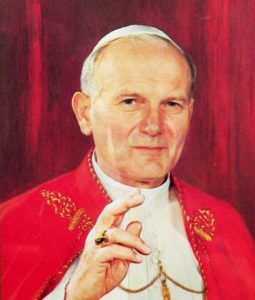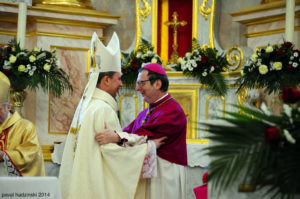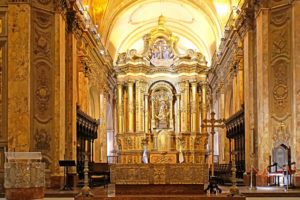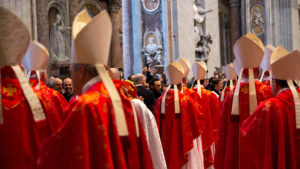Posted by Roberta Grimes • September 25, 2021 • 20 Comments
Jesus, The Source, The Teachings of Jesus
The Light of God surrounds us.
The Love of God enfolds us.
The Power of God protects us.
The Presence of God watches over us.
Wherever we are, God Is, and all is well!
– James Dillet Freeman (1912-2003), from “Prayer for Protection” (1941)
 Jesus wanted to abolish religions altogether and teach us to relate to God on our own. The Gospel evidence is plain to see, but very few Biblical scholars will consider its amazing implications. We tend to see religions as such a core human institution that they feel essential to us now. Without religions, how can there be a God? And if there still is a God even without religions, how can we find and know that God? I was a teenager when I first put together the evidence that Jesus came to abolish religions, and my own reluctance to believe it kept me silent until I hit old age. It was like the bits of evidence that Jesus may have been homosexual: they are there in the Gospels, and personally I tend to believe it was true and it doesn’t matter; but it disrupts the narrative for some people. And the last thing Christianity needs right now, at a time of so much stress and falling-away, is any controversial new ideas!
Jesus wanted to abolish religions altogether and teach us to relate to God on our own. The Gospel evidence is plain to see, but very few Biblical scholars will consider its amazing implications. We tend to see religions as such a core human institution that they feel essential to us now. Without religions, how can there be a God? And if there still is a God even without religions, how can we find and know that God? I was a teenager when I first put together the evidence that Jesus came to abolish religions, and my own reluctance to believe it kept me silent until I hit old age. It was like the bits of evidence that Jesus may have been homosexual: they are there in the Gospels, and personally I tend to believe it was true and it doesn’t matter; but it disrupts the narrative for some people. And the last thing Christianity needs right now, at a time of so much stress and falling-away, is any controversial new ideas!
But the evidence that Jesus came to end religions is abundant in the Gospels and plain to see. Second only to His teachings about love, forgiveness, and bringing the kingdom of God on earth, it is what He mostly talked about. In fact, it was probably precisely because He was teaching us how we could bring the kingdom of God on earth that he was so frankly hostile to religions. Our fear-based relationships with human-made gods make it a great deal harder for us to ever come to know and love the genuine Godhead. So, He said it. He kept on saying it. And it is past time for us to consider the possibility that He actually may have meant what He said!
 We have today so few of the precious words that Jesus spoke over more than three years of public teaching. But even at that, we can see that the Lord’s manner when something was important to Him was to preach about it repeatedly and from more than one perspective. He treated love that way. And forgiveness. And He mentioned the kingdom of God or the kingdom of heaven more than eighty times over all four Gospels! His effort to teach against religions was a harder task, since for Him to speak directly against the prevailing religion would have been a capital crime. So He had to speak around the edges, and He did that very cleverly. Let’s consider what He actually said.
We have today so few of the precious words that Jesus spoke over more than three years of public teaching. But even at that, we can see that the Lord’s manner when something was important to Him was to preach about it repeatedly and from more than one perspective. He treated love that way. And forgiveness. And He mentioned the kingdom of God or the kingdom of heaven more than eighty times over all four Gospels! His effort to teach against religions was a harder task, since for Him to speak directly against the prevailing religion would have been a capital crime. So He had to speak around the edges, and He did that very cleverly. Let’s consider what He actually said.
He Spoke Against Religious Traditions
Every religion is built on traditions, and Christianity is no exception. The religion is centered on the notion that Jesus died to save us from God’s judgment for our sins, and in observance of that fact every Christian denomination participates in the ritual of communion at least occasionally. For Catholics, it happens every week. But what might Jesus say about that?
“Neglecting the commandment of God, you hold to the tradition of men… You are experts at setting aside the commandment of God in order to keep your tradition” (MK 7:8-9).
“Why do you transgress the commandment of God for the sake of your tradition?… You hypocrites! Rightly did Isaiah prophesy of you: ‘This people honors me with their lips, but their hearts are far away from me. But in vain do they worship me, teaching as doctrines the precepts of men’” (MT 15:3-9).
Ouch. And Jesus was quoting the great prophet Isaiah, who had spoken similar words to the Jews a full eight hundred years before. Isaiah, too, had told us that God is disgusted and not charmed by all our human-made religious practices!
He Despised Religious Authorities and Clergymen
 He was so firm about this, and so consistent, that it is hard to resist concluding that it was the very idea of clergymen that he really found to be so offensive! But, judge for yourself.
He was so firm about this, and so consistent, that it is hard to resist concluding that it was the very idea of clergymen that he really found to be so offensive! But, judge for yourself.
“Beware of the scribes who like to walk around in long robes, and like respectful greetings in the market places, and chief seats in the synagogues and places of honor at banquets, who devour widows’ houses, and for appearance’s sake offer long prayers; these will receive greater condemnation” (MK 12:38-40).
“Woe to you religious lawyers! For you have taken away the key of knowledge; you yourselves did not enter, and you hindered those who were entering” (LK 11:52).
“But woe to you, scribes and Pharisees, hypocrites, because you shut off the kingdom of heaven from people; for you do not enter in yourselves, nor do you allow those who are entering to go in” (MT 23:13).
And who can forget the moment when Jesus altogether lost it? “Jesus entered the temple and began to drive out those who were selling, saying to them, “It is written, ‘And My house shall be a house of prayer,’ but you have made it a robbers’ den.” And He was teaching daily in the temple; but the chief priests and the scribes and the leading men among the people were trying to destroy Him, and they could not find anything that they might do, for all the people were hanging on to every word He said” (LK 19:45-48).
 At last, near the end of His life on earth, the Lord’s distress at the man-made religious details that He had been fighting all His public life had come to a head for Him. And the clergy for whom He had been an increasing bane were fed up enough that they were thinking about how to be rid of Him. We should note, too, that the Lord’s rant against the money-changers is another echo of words from God first spoken by an Old Testament prophet (see Jer 7:11-12). Which thought makes me more deeply realize that Jesus is frankly telling us now that God has been fighting to free us from fear-based human-made religions for what is now going on three thousand years! Oh, dear God. The genuine Godhead’s patience with us reflects a love that truly is beyond all human understanding!
At last, near the end of His life on earth, the Lord’s distress at the man-made religious details that He had been fighting all His public life had come to a head for Him. And the clergy for whom He had been an increasing bane were fed up enough that they were thinking about how to be rid of Him. We should note, too, that the Lord’s rant against the money-changers is another echo of words from God first spoken by an Old Testament prophet (see Jer 7:11-12). Which thought makes me more deeply realize that Jesus is frankly telling us now that God has been fighting to free us from fear-based human-made religions for what is now going on three thousand years! Oh, dear God. The genuine Godhead’s patience with us reflects a love that truly is beyond all human understanding!
He Told us Not to Package His Teachings with Judaism
And He likely meant to include all religions. It is clear from the words He spoke that He was trying to keep the genuine Word of God entirely free from the old human-made ideas that are the basis of all religions.
“But no one puts a patch of unshrunk cloth on an old garment; for the patch pulls away from the garment, and a worse tear results. Nor do people put new wine into old wineskins; otherwise the wineskins burst, and the wine pours out and the wineskins are ruined; but they put new wine into fresh wineskins, and both are preserved” (MT 9:16-17).
“Therefore every scribe who has become a disciple of the kingdom of heaven is like a head of a household, who brings out of his treasure things new and old” (MT 13:52).
Christians have mostly assumed these words were a call to create for Him a new religion, but when they are put in context with all His vigorously anti-religious teachings it is clear that was the last thing He wanted!
He Gave Us the Basics of a Post-Religious Relationship with God
 He taught us how to recognize the difference between human-made false teachings and the genuine Word of God. He encouraged us to avoid praying in religious assemblies, and instead to seek privacy and pray to God on our own. He also suggested that the purpose of these changes was to establish a relationship with the genuine God that was based not in fear, but in love and trust.
He taught us how to recognize the difference between human-made false teachings and the genuine Word of God. He encouraged us to avoid praying in religious assemblies, and instead to seek privacy and pray to God on our own. He also suggested that the purpose of these changes was to establish a relationship with the genuine God that was based not in fear, but in love and trust.
“Beware of the false prophets, who come to you in sheep’s clothing, but inwardly are ravenous wolves. You will know them by their fruits. Grapes are not gathered from thorn bushes nor figs from thistles, are they? So every good tree bears good fruit, but the bad tree bears bad fruit… So then, you will know them by their fruits” (MT 7:15-20).
“When you pray, you are not to be like the hypocrites; for they love to stand and pray in the synagogues and on the street corners so that they may be seen by men. Truly I say to you, they have their reward in full. But you, when you pray, go into your inner room, close your door and pray to your Father who is in secret, and your Father who sees what is done in secret will reward you” (MT 6:5-6).
“Consider the lilies, how they grow: they neither toil nor spin; but I tell you, not even Solomon in all his glory clothed himself like one of these. But if God so clothes the grass in the field, which is alive today and tomorrow is thrown into the furnace, how much more will He clothe you? … And do not seek what you will eat and what you will drink, and do not keep worrying. For all these things the nations of the world eagerly seek; but your Father knows that you need these things. But seek His kingdom, and these things will be added to you. Do not be afraid, little flock, for your Father has chosen gladly to give you the kingdom” (LK 12:27-32).
 God has chosen gladly to give us the kingdom! But Jesus makes it plain to us that unless we will give up the crutch of our old human-made religions, we never will be free enough from fear and ancient superstitions to have the ultimate joy of coming at last to know and love and trust the genuine God.
God has chosen gladly to give us the kingdom! But Jesus makes it plain to us that unless we will give up the crutch of our old human-made religions, we never will be free enough from fear and ancient superstitions to have the ultimate joy of coming at last to know and love and trust the genuine God.
The Mind of God guides us.
The Life of God flows through us.
The Power of God abides in us.
The Joy of God uplifts us.
The Strength of God renews us.
The Beauty of God inspires us.
Wherever we are, God Is, and all is well!
– James Dillet Freeman (1912-2003), from “Prayer for Protection” (1941)
Hi Roberta, hi everybody!
The post this week makes an interesting and vital point—the idea of whether we can have God without church.
On a basic level, I think we are all initially drawn into religion as if it is the easiest path to discovering God. Then the kicker is that what we actually discover is that the religion itself BECOMES the god.
I think of my deceased brother who was so fed up with Catholicism that he decided he had to be an atheist. Indeed, he WAS an atheist with respect to the god that religion has become.
I think my brother, who died young, chose an early exit so he could be free to find God. It was the best path for him back to what in his heart he always knew was true.
Oh my dear Mike, your comment epitomizes the problem with modern Christianity. It isn’t as nakedly fear-based as it was – no hellfire from the pulpit in most denominations – but still, the very tenets on which the religion is based induce in us both terror to think there exists a God so brutal that He would enjoy watching His own Son being murdered, and also skepticism and derision of a religion that echoes the Lord’s demand that we forgive seventy times seven times, but yet God won’t forgive us even once. As they say down home, “that dog won’t hunt.”
I hear from so many people now who want Jesus but can no longer stomach Christianity! Some of them say they were thrilled to find some old YouTube or other of mine where I say there is a genuine God with none of the flaws of the Christian God, and it was from that perfect eternal Godhead that continuously manifests this universe that Jesus came to us. They want to know if something so wonderful can really be true? And it is true! They make me feel like Santa Claus on Christmas morning, bringing joy to them for the rest of their lives.
Mike is right. Religion does become the god. If you disagree with the religion, you are automatically considered to be an atheist or an unrepentant “sinner.” This is all changing now, and it is long overdue.
Dear Roberta, Thanks for so well clarifying Christ’s preaching about avoiding those who parade their virtues but have no real knowledge or power. Just look at the behavior of the current pope to see just how badly those wearing robes for show may be.
Regarding Christ’s mentions of the “Kingdom,” its my sense that He is not referring to Earth, but instead to Heaven, from where we came for education here on Earth, and will return as spirit according to God’s own intent and design-no middlemen having any say about that.
Dear Jack, the kingdom of God (or “heaven,” in Matthew) is something that no Christian seems to understand. Many of them say that this is that kingdom, and we just have to follow Jesus to make it happen; but when you very closely read what He says, you realize that the actual kingdom of God exists now, but elsewhere, and it is our task to bring it to the earth.
With Thomas’s help, I have come to understand that the reference is to the sixth level of the afterlife, the level just beneath the Source, where everyone is at a very high consciousness vibration. And Jesus came to teach us how to raise our own vibrations! That is what His teachings on love and forgiveness are all about. When enough people follow those teachings, since we are all part of the same consciousness, we will indeed be able to live while on earth at the spiritual level of the kingdom of God!
I’m surprised that Jesus didn’t get in trouble for saying what he did as quoted above. I’m not the brightest star in the sky, but to me it is clear that he was encouraging a one-on-one relationship with God and that not only did he not mention the need for a middleman, but he sounded like he was discouraging it. The mystery is why this went on for so long. He couldn’t have been more clear. Much of what he says about hypocrites in long robes for appearance sake reminds me of the Vatican which, of course, did not yet exist
My dear Lola, good point, but the Lord’s contemporaries were not as sophisticated (nor as jaded) as we are. I think that for them, the class roles, the primacy of their God and his decreeing the need for clergy, and all things as they were simply were ordained and forever: they never thought to question any of it. They heard Him from minute to minute simply condemning the worst excesses of these middlemen. It never occurred to them that He was challenging their whole system.
And come to think of it, neither do Christian clergymen ever question their own system, even to this day. Christians always have read Jesus as talking against those bad evil old Pharisees, and we aren’t like them at all! In fact, the reading of the Lord’s Gospel words by those who preach about them has been astonishingly shallow. I spotted and questioned this strain of teaching that we should get rid of middlemen in Jesus’s teachings when I was college-age! But then, I was seeking and questioning. The clergy think they already know.
Yeah, shallow is a good way to describe it. These preachings always came across to me that way as well.
Roberta, your message is always on target, as though you are reaching out to me personally. For several days I have been seeing and hearing in song the words, “All is well.” And here you are, with words of wisdom and quotes that end in “All is well.” It is such a simple yet profound message that speaks to me. Thank you.
Oh my dear Janelle, you cannot know how happy it makes me to hear that I have helped you this way! Thank you!! In fact, I really am reaching out to you personally. I often feel as if we are having tea and I am telling you everything I have learned over fifty years so you will come to share this sublime joy of certainty that every religion has been wrong about you, and far from being a sinner, you are in fact the genuine Godhead’s best-beloved child for all eternity. I want you to know it all!
Thank you, as always, Roberta for this post.
My family is Lutheran and, until I was old enough to say ‘No’, I had to go to church every Sunday. I distinctly remember sitting in the pew as a child thinking there was something very wrong with a religion that decreed unbelievers would go to Hell. I had an epiphany after a serious car accident and, since then, have pursued my own direct relationship with God or Universal Intelligence as I now call All There Is.
While eschewing it myself, I still try to see the ‘beauty’ that exists in man-made religions… even though sometimes it is very hard to find!
My dear Kristian, you have been way ahead of me! I was still in that pew in my fifties, still making allowances for Christianity, still trying to find the ways that my thinking had to be wrong because this was Jesus’s religion, wasn’t it? There had to be something I was just too stupid to realize, but if I looked for it hard enough I would find it and the religion would at last make sense. I kept trying until the moment when I first read the Gospels by themselves. In my fifties, for heaven’s sake! And I realized that Jesus agrees with the afterlife witnesses, but not at all with Christianity. I wish I had had your great insight a whole lot sooner!!
I have some family that are somewhat Pentecostal, and all who believe the Christian Church’s teaching of salvation and repentance. Sadly, the past few years have made them very uncomfortable with the current political and moral state of America. They believe God is in control, yet they are very fearful of the end of days as written in the Bible. Sadly, I feel their pain as they worry about loved ones left behind during the rapture, and they say pray for America. My thing is, why just America? As if America is God’s favorite. Many have been saying this as long as I can remember. But, as Thomas through you continues to convey here, whatever happens is part of a much larger picture. We can accept this, and when we look around us, despite of our struggles, the humans that we interact with daily are not nearly as desperate, evil or manipulative as those with persuasive power suggest they are. This summer I attended a neighborhood picnic for an elderly couple moving to Montana. The host was a Muslim man, the honorees were Mormon, we had a black family, a gay couple and an immigrant from Yugoslavia before the Bosnia genocide, as well as Christians. It was pleasant and that small group represented all that is good about America. And each one of us has a special Spirit that complements ever other one and the entire Godhead, because we are all part of that Godhead already, not separated, as religions make us believe we are.
Oh my dear Tim, what a wonderful neighborhood you must have! Part of what I love about living in my little town right outside Austin is that there are people here from all over, a few from old Texas families but mainly people from everywhere. I just wish our neighborhood were so full of interesting people from so many everywhere places as yours is!
Yes, our concern has to be the whole world. As the wonderful, glorious Dr. Martin Luther King, Jr., said, “We may have come on different ships, but we’re all in the same boat now.” That is America in a nutshell! And ultimately, it is all the world. The world is fragile enough and interconnected enough that unless we work hard for the spiritual elevation of all of humankind, we will in the end be able to save none of it. No nation is alone!
I still don’t understand how we can enlighten the world with sufficient speed, but I do see – as you so wisely point out – that the individual people of the world are not the problem. As has been the case down all of human history, the problem seems to be corrupt and venal leaders who see profit for themselves in keeping people divided against one another. And what we do about that, I really cannot imagine.
Hi Roberta; hello you guys,
I had an inner experience once at 19 years, in synagogue one Sabbath, that I’ll always remember. I even recall the uniquely distinct feeling of it, where somehow I experienced how things really are underneath all the palaver; under all we see or seem to be.
As the rabbi was giving his homily I felt I was suddenly a keen ‘observer,’ where I lost the everyday sense of who I was. All regular thoughts vanished and I was purely an observer watching a play or staged drama, while also being but a player on stage myself. Yet unlike other actors, I ‘knew’ that this was all a pretense.
I laughed inside! because this play was in the nature of a travesty akin to a pantomime. It was designed for fun and not meant to be serious or real.. I remember the sense of lightness, feeling as one who is delighted by the curtain opening to ‘act one scene one.’ It was like watching a happily anticipated play that was finally getting going. There was that thrilling freshness of new enjoyment that strikes kids sometimes.
Words fail here, but the sense of it was much keener than I can convey, and this experience lasted the length of the homily (none of which I listen to). Then slowly things normalized. The bright experience was over and a duller, habitual ‘reality’ returned. But the wonder of it stayed with me for a long, long time…
All the while I was in this observer state, I knew I was privy to a secret that others didn’t know. I felt at one with Creative Intelligence that made the drama in the first place and He was sharing it with me for a bit. That’s how I knew that all the fancy dress, the staging, the lines and ceaseless, mad choreography of life was not the real thing. Reality was underneath all of it and we remain part of it, no matter the sound or fury of the travesty that whirls around us.
Middleman?! Religion and all its palaver is no middleman – it is just a drama that frets and struts it’s way on stage, full of sound and fury, signifying nothing. The real inner religion (spirituality) is on the inside.
And yeah, isn’t it interesting that I had this epiphany in a house of God on the Sabbath, during the rabbi’s entrance from stage right. 🙂🙃😊😉
Oh my dear Efrem, what an amazing experience! Thank you for sharing it with us. It makes a lovely memory for you, a useful reminder to the rest of us that this is all temporary and none of it is our real life, and also a promise. I hope you saw it as a promise as well, back when it was happening!
What you experienced was a hint of what apparently will be our constant mindset, once we are free of this material illusion. Our base mental state is perfect joy! It’s a peace and a power based in perfect love of such an exultant kind that there can be nothing better and more perfect. It is bliss. And those who have gone ahead tell us that in fact that glorious way of being is our constant natural state!
Words do indeed fail us. And no middleman is needed between us and our genuine eternal life, but perhaps that middleman at least can act as a gateway for us to what is real. Your natal religion gave us what still feels to me to be the most profound insight of all: “The eternal God is a dwelling-place, and underneath are the everlasting arms” (Deut 33:27).
Wow, Efrem/ How awesome is that! Especially since you were only 19 at the time. What you were experiencing was actual reality, but I’m sure the rabbi wouldn’t think so, neither would any Christian clergyman. Any ideas on where this particular feeling came from? The closest I ever came to anything like that was when I was in 5th grade and watching a priest give out communion. Suddenly the thought came into my head that the communion wafer was NOT the body and blood of Jesus Christ. It was not just a logical conclusion but a strong thought that’s hard to explain in words and just appeared e out of absolute nowhere
My dear Lola, even long after I had learned better, I still was accepting that wafer on my tongue as somehow the essence of Jesus and spiritually nourishing. So wise you were when you were five! And so very hard it has been for me to finally put away the childish thing (in Paul’s phrase) that the religion actually is.
Hi Roberta. I think a lot of people are attached to the structure, social cohesion/identity, and the sense of providing moral/ ethical guidance that religion brings. They probably feel that it would become some sort of anarchic Mad Max world without it, and might sometimes think that the better compromise is to put up with domineering authoritarian or theocratic governments – something that seems to be on the rise to an alarming degree now in the world – trading an illusory sense of security for true spiritual freedom. I love your idea of a “post-religious relationship with God,” but imagine lots of folks would see that as an oxymoron and recipe for a rudderless society with everyone flying off in different directions. Is this kind of fear based thinking why the early Roman Church felt it had to impose orthodoxy and persecute gnostics and all those it deemed to be heretics? How are people to be shown that chaos need not be an inevitable result of eliminating the religious “middleman?” (my sense is that it needs to be done primarily through example, one shining beacon at a time, but that does appear like a painfully slow process in a world in so much danger. Is there some multiplier effect not yet evident?) Jesus must have thought about this issue a lot. I wonder what his conclusions were for the world then, and what he might prescribe as the “Way” forward for our world today. Have you gotten any indication of Thomas’ vision in this regard, or perhaps the vision of a larger group he may be working with?
My dear Scott, I think the only answer is to re-introduce the Lord’s Way, which Constantine’s religion-builders stamped out and replaced with their fear-based religion. I have come to conclude that people find it impossible to relate to God directly, without a religion between, perhaps because God seems so far above us and also because we have been taught that God is scary. But Jesus is not just the son of God; Jesus is an aspect of the genuine Godhead! He actually is God, here with us and never scary. And He brought us teachings which have the power all by themselves to heal the world, so it seems to be past time for us to begin!